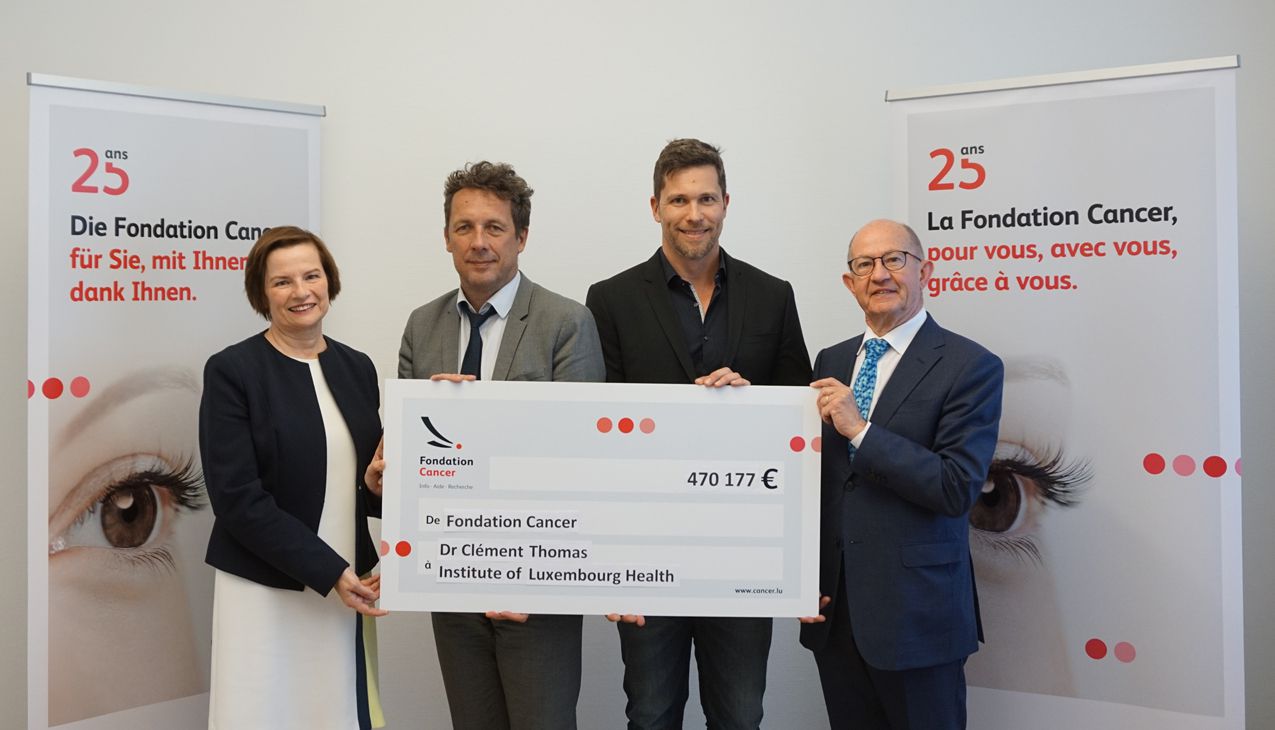Luxembourg’s Cancer Foundation (Fondation Cancer) supports a new research project from LIH that aims to evaluate the effectiveness of targeting a new mechanism named the “actin response” by which cancer cells escape immune cell attack.
On 15th May 2019, Lucienne Thommes, Director of the Cancer Foundation and Dr Carlo Bock, President of the Cancer Foundation, handed over a check of 470,177 € to Dr Clément Thomas, Principal Investigator of the Cytoskeleton and Cancer Progression Research Group at LIH’s Department of Oncology, in the presence of Dr Ulf Nehrbass, CEO of LIH. This funding will allow the launch of a research project named “ACTIMMUNE - Overcoming tumour immune evasion by targeting the actin response”.
Natural killer (NK) cells are sentinels of the innate immune system able to recognize and eradicate diseased cells, including cancer cells. Although NK cells act as a first line of defence against tumour development and metastasis, some tumour cells acquire the capacity to evade immune surveillance, leading to cancer progression.
The Cytoskeleton and Cancer Progression research group at LIH’s Department of Oncology recently uncovered a pivotal role for the actin cytoskeleton in mediating breast cancer cell resistance to NK cell-induced cell death. The team led by Dr Thomas showed that upon NK cell attack, a massive accumulation of actin near the cell-cell contact site rapidly appears in resistant target cells. Like a molecular shield, this “actin response” protects cancer cells from being killed.
The ACTIMMUNE project aims at validating the role of the actin response in tumour immune evasion in a preclinical model and at providing a rationale for targeting this process as a therapeutic approach to improve the antitumor immune response. Ultimately, the ACTIMMUNE project shall allow identifying clinically relevant targets to interfere with the actin response and thus restore an efficient anti-tumour immune response. The project is in line with the main research axes of the National Cancer Plan.

